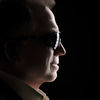UV filter- with and without
Feb 8, 2018 07:13:37 #
A rigid lens hood designed for the lens is the best protection for the front element, plus reduces stray light causing flare and loss of contrast. - filters should be used only as appropriate - a UV filter at night makes no sense but still a quality one should not affect the results as in your example. A filter is another element in the lens chain so there is potential for flare and reflection when not called for. A lens cap can also offer protection when not shooting.
Feb 8, 2018 08:32:59 #
billnikon
Loc: Pennsylvania/Ohio/Florida/Maui/Oregon/Vermont
MWojton wrote:
2 days ago I posted picture #1 and asked for advic... (show quote)
The photo's are not identical, perspective changed from one picture to the other. This throws your statement off quite a bit.
Feb 8, 2018 09:35:24 #
Great example of the impact filters make. I have always used either a UV or polarizing filter - primarily to protect the lens. This is an eye opener and I like the ideas suggested by members to use either a clear glass or nothing at all - save a lens hood/cap. Good post!
Feb 8, 2018 09:41:33 #
MWojton wrote:
Tiffen
I tossed my Tiffens long ago. Most of them are uncoated, and the glass quality is mediocre at best. I routinely use higher quality, multi-coated filters with great success.
Feb 8, 2018 09:46:04 #
I have never recommended to use a filter as "protection." Use the lens cap and the lens shade and if you are careful you have all of the protection you need. I have never used a filter for "protection."
Problem with a filter is that they get dirty and degrade your image. A low quality filter also degrades the image.
With digital nobody needs a UV filter.
Problem with a filter is that they get dirty and degrade your image. A low quality filter also degrades the image.
With digital nobody needs a UV filter.
Feb 8, 2018 09:47:25 #
I use use B+W UV filters all the time except for night photograph in Unthreatening environments.
I live at 7,000’ above sea level and am frequently shooting at places above 8,000’ and the UV filter can help remove some light invisible to human vision but not the sensor. They have also protected the front element from rain, spray from waterfalls, flying food at a wedding reception, and flying spittle when photographing an attack dog being trained. Depending on what and where you are photographing your needs will change, but for me, high quality UV filters are useful.
I live at 7,000’ above sea level and am frequently shooting at places above 8,000’ and the UV filter can help remove some light invisible to human vision but not the sensor. They have also protected the front element from rain, spray from waterfalls, flying food at a wedding reception, and flying spittle when photographing an attack dog being trained. Depending on what and where you are photographing your needs will change, but for me, high quality UV filters are useful.
Feb 8, 2018 09:49:32 #
leftj
Loc: Texas
MWojton wrote:
2 days ago I posted picture #1 and asked for advic... (show quote)
UV filters on digital gear are a waste of money, don't provide the protection that a hood provides and do detract from the image taken.
Feb 8, 2018 10:20:04 #
I have never seen the results of a controlled comparison between premium UV filter and a low cost alternative that showed any difference in the image. One controlled experiment compared 4 B&W UV's vs. 4 stacked noname alternatives. Yosemite could see a difference only in the corners. Stacking 4 filters is extreme. In my opinion, using a lower cost product like Promaster is a better alternative than nothing on an expensive lens. Just make sure it's coated and remove it only when conditions are ripe for flair.
Feb 8, 2018 10:31:58 #
MWojton wrote:
... I went back the next night without the filter...
Methodology:
To better compare you should do the experiment under exactly the same conditions. To ensure the same conditions, take the photos within minutes of each other (or even seconds) to avoid atmospheric effect changes. One shot with the filter, one shot without. Even better, repeat on/off shots several times. Use a tripod to ensure the same field of view and use manual exposure. Coming back the next night without the filter does nothing beyond providing another point of anecdotal evidence. Some of the difference may be due to increased humidity or atmospheric turbidity in the first shot.
When comparing the shots zoom in (or crop) to the specific areas of the image where you see differences. That will be more convincing. In your example the first shot has the original included for download while the second shot does not. That makes it difficult to compare the two shots at equal size.
Also, it would be best to do this with several different scenes. In some cases you will probably see no difference, e.g. a daylight shot looking away from the sun and no solar reflections or other bright lights in the field of view. This will give you some idea of what sorts of scenes are likely to give you problems.
I'm not a fan of protective filters on your lens at all times. I believe that they provide the possibility of flare and reflections although for the most part they do nothing (beyond losing a little bit of light). I do not believe they provide protection for anything other than blowing sand, salt spray, and mud although they are useful for those conditions.
As far as impact damage, they are pretty much useless. Just think about it. The front element of your lens is a fairly thick piece of glass. A filter is pretty thin. The thin piece of glass is more likely to break than the thick piece. Also there is a 20 minute video on the subject at
https://petapixel.com/2015/08/31/photo-mythbusters-how-much-do-uv-filters-actually-protect-your-lenses/ that shows how tough lenses can be compared to filters.
Feb 8, 2018 10:37:50 #
Feb 8, 2018 13:14:58 #
MWojton wrote:
Do you think a UV filter can degrade ALL photos, .
YES
Feb 8, 2018 13:23:23 #
DirtFarmer wrote:
Methodology: br br To better compare you should d... (show quote)
Let sand or other abrasive scrape across your "unprotected" lens and then tell us UV filters offer no protection. I challenge you to place a quality filter on your best lens, take a picture, remove the filter and take a picture under identical conditions and tell us with a straight face that the difference is clearly visible.
Feb 8, 2018 13:24:11 #
First, in no way is this a valid comparison of UV vs. non-UV. The pictures were not even taken on the same day! As already mentioned your camera position has changed, and removing a UV filter would not change the exposure value or atmospheric conditions, which are not even close in these examples.
Let's examine the premise that is being debated:
"... what is causing the horrible glare from the green lighting. Someone mentioned that it could be a UV filter ... "
1. What are you referring to as "the horrible glare from the green lighting" ? You are observing a NORMAL (and quite beautiful) ELEMENT AND OUTCOME OF NIGHT PHOTOGRAPHY. Take this as the compliment it is intended to be: Why do you want to change what is already perfect?
2. The UV or not to UV argument can go on forever, but is completely irrelevant in this instance.
Let's examine the premise that is being debated:
"... what is causing the horrible glare from the green lighting. Someone mentioned that it could be a UV filter ... "
1. What are you referring to as "the horrible glare from the green lighting" ? You are observing a NORMAL (and quite beautiful) ELEMENT AND OUTCOME OF NIGHT PHOTOGRAPHY. Take this as the compliment it is intended to be: Why do you want to change what is already perfect?
2. The UV or not to UV argument can go on forever, but is completely irrelevant in this instance.
Feb 8, 2018 13:45:36 #
MWojton wrote:
2 days ago I posted picture #1 and asked for advic... (show quote)
Use only clear glass protectors on digital camera lenses, unless you are more than a mile/1800 meters above sea level. Use only the top brands.
Tiffen is a bottom tier brand...
I generally use metal lens hoods and lens caps. I use a glass protector only when in a potentially hazardous environment.
Feb 8, 2018 14:05:19 #
Quality filter is a must.
Going sans filter? - is it worth the risk to damaging the lens if you have an accident?
Going sans filter? - is it worth the risk to damaging the lens if you have an accident?
If you want to reply, then register here. Registration is free and your account is created instantly, so you can post right away.







